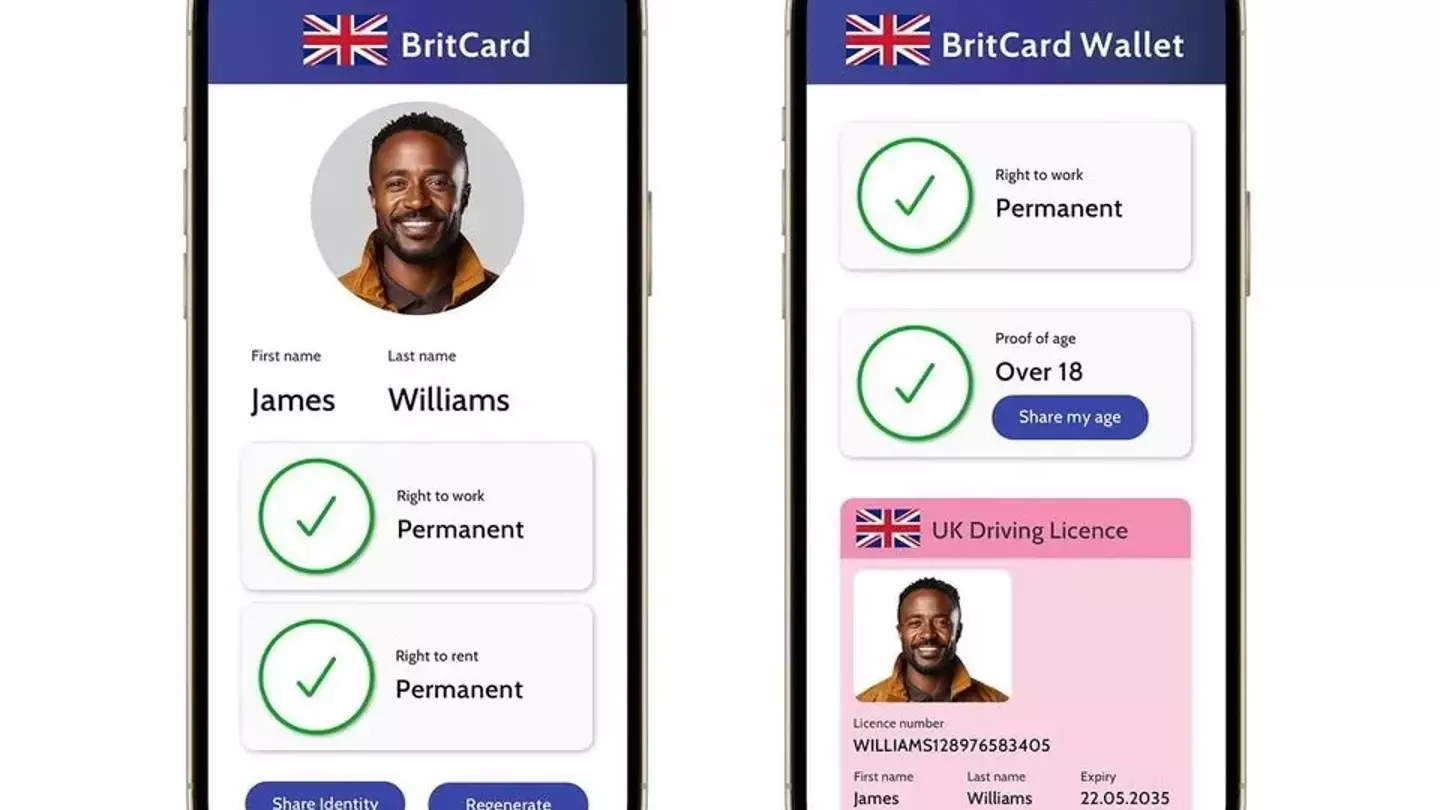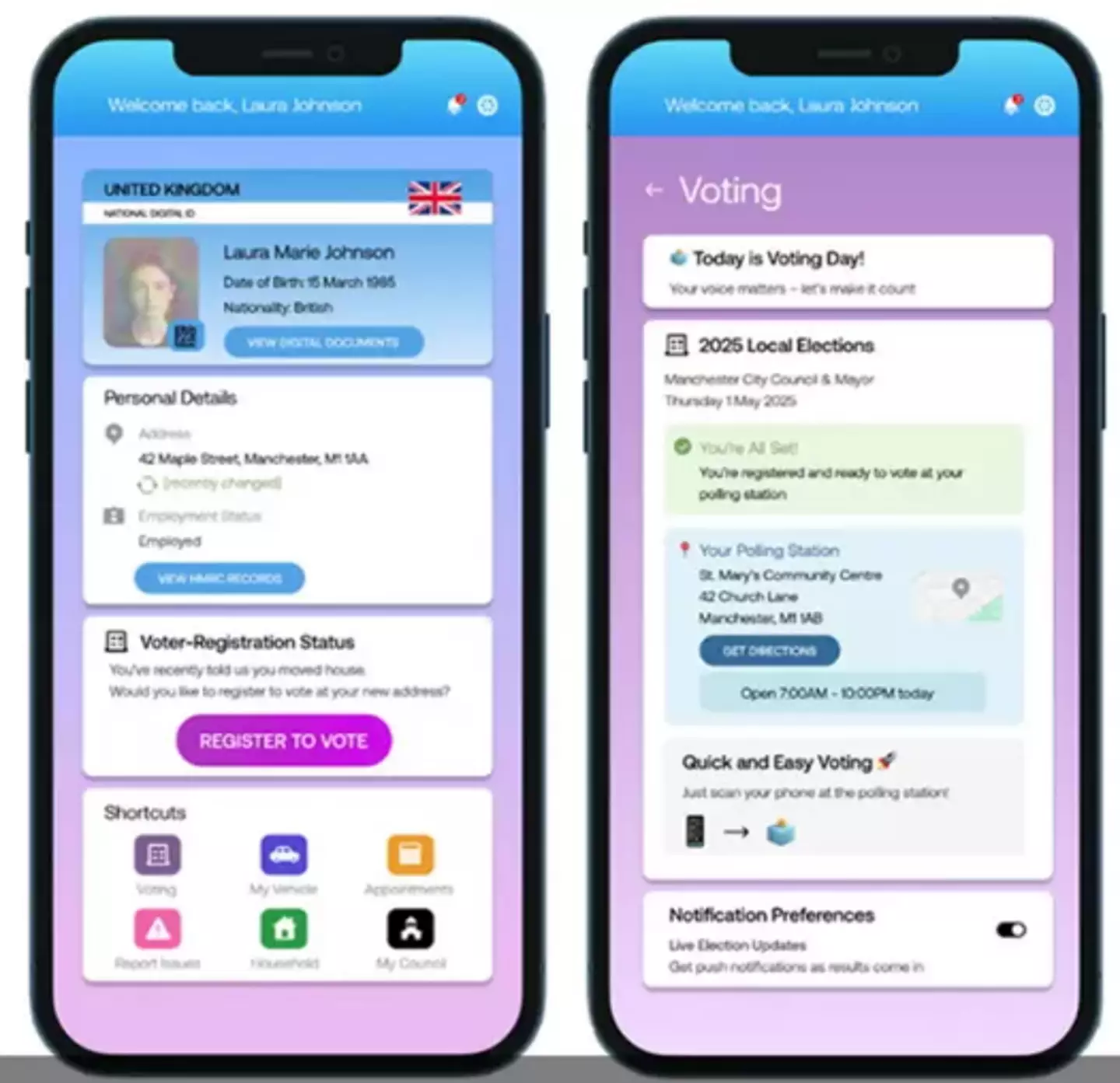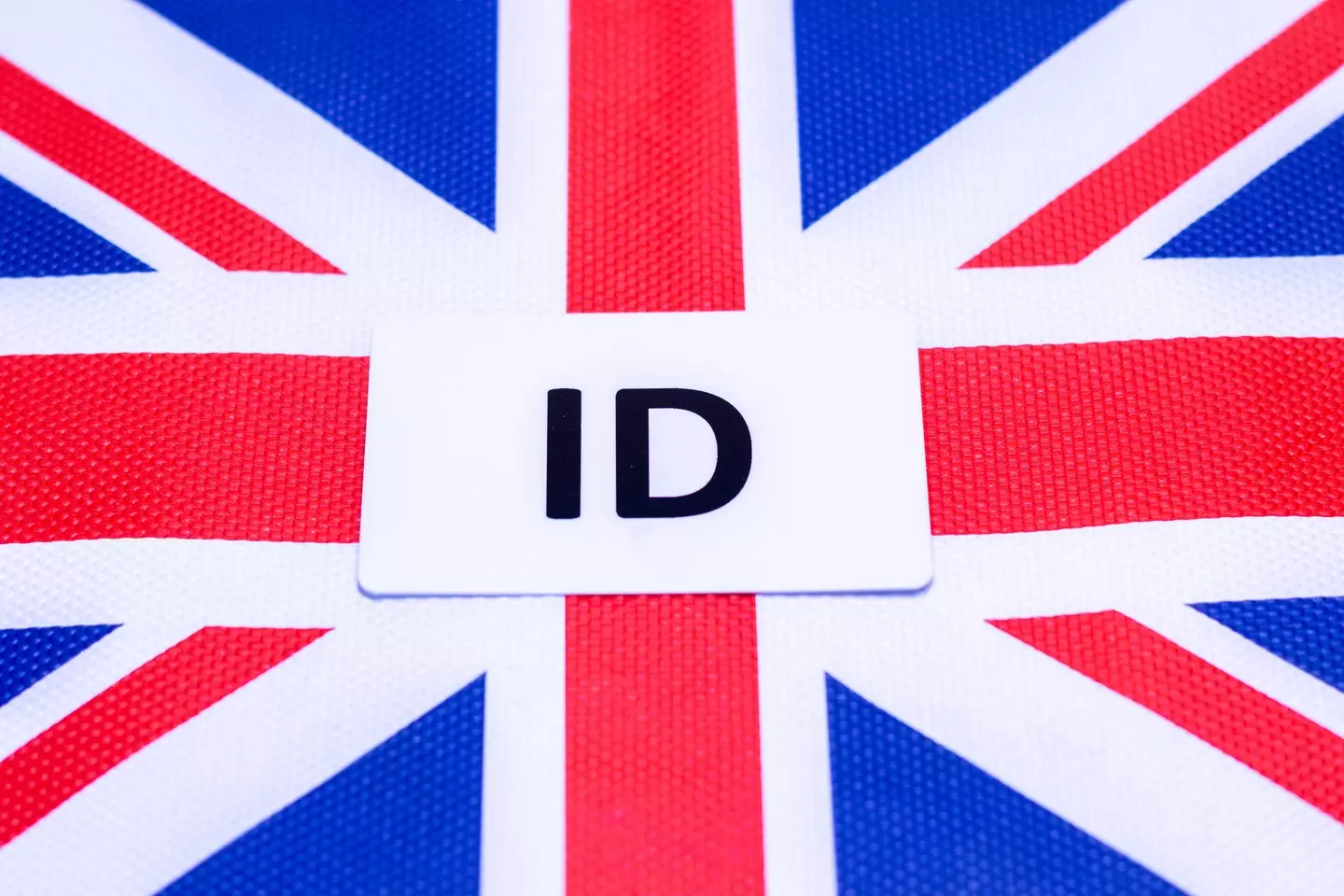
Here is everything we know about mandatory digital ID cards, which the Labour government are planning to roll out across the country.
Yesterday, it was revealed that a new national identity card scheme, dubbed the 'BritCard', was heading our way, with Prime Minister Keir Starmer confirming the plans in a speech earlier today.
"For too many years it's been too easy for people to come here, slip into the shadow economy and remain here illegally because, frankly, we've been squeamish about saying things that are clearly true," Starmer said of the scheme.
"This government will make a new free-of-charge digital ID mandatory for the right to work... You will not be able to work in the United Kingdom if you do not have digital ID. It's as simple as that."
Advert

Why is the government introducing digital ID cards?
The digital ID 'BritCards' will serve as proof of someone's right to live and work in the UK.
As Starmer outlined in his speech, digital ID cards are part of Labour's plans to clamp down on illegal immigration to the country.
The PM had floated the idea earlier this month, suggesting such a scheme would play an 'important part' in preventing illegal migrants from obtaining work in the country. This argument was backed by Labour minister Harriet Harman, who told Sky News that digital ID cards would 'make it even more difficult for people to work illegally'.
At the moment, a person's right to work in the country is proven by their National Insurance number, however, these can be stolen by those looking to work illegally.
An official roll out date is yet to be confirmed, however, Starmer expects for the scheme to be in place by 'the end of this parliament'. This means anytime before the next general election, which cannot be held any later than August 2029.

How will the digital ID card work?
The digital ID card will be an app which is downloaded onto your smartphone and will contain your name, date of birth, nationality, employment status, address and residency status.
A photograph of the ID holder will also be included.
Brits looking to rent a home or start a new job will be required to show their ID card, which will then be checked against a national database to confirm whether or not they have the right to live and work in the UK.
Ministers have suggested the cards could also be used for accessing tax records and applying for driving licences or welfare.
However, this would not include accessing healthcare or welfare payments (per BBC).
What happens if someone does not have a smartphone?
Given the fact that a digital ID system relies heavily on a person owning a smartphone, one of the biggest concerns is over accessibility – specifically around homeless people and the elderly.

According to the initial announcement, the new scheme will be subject to a new public consultation, which will look at making sure ID cards are accessible to all working age adults.
The scheme will also be optional for students, pensioners and anyone not seeking work.
What happens if someone refuses to get a digital ID card?
The announcement appears to have been met with severe backlash from the British public, with over a million people already signing a petition which demands the scheme be scraped.
So, what happens to working age Brits who simply refuse to get an ID?
Under a previous attempt to introduce ID cards, pushed by Tony Blair's government, the penalty for non-compliance were set to be a maximum of £1,000. However, this scheme was never rolled out.

While the government are yet to confirm what the penalties for refusing to get a card would be, they appear to be taking a softer stance.
During an interview with BBC Breakfast, this question was put to Culture Secretary Lisa Nandy, who replied: "This isn't a heavy handed approach. We're not planning to go round fining people.
"[But] you will have a problem if you want to get a new job."
Are there any privacy concerns related to digital ID cards?
Backlash to the scheme is focused around a prospective invasion of privacy, with rights groups such as Big Brother Watch saying the plans are 'inconsistent with the values that underpin a free society and poses serious risks to privacy, security and equality'.

There are also concerns about potential cybersecurity risks. "After so many high profile and large data breaches this year seen across multiple industries, it will be imperative that the data is securely stored. A breach at this level could affect millions of people so it is absolutely vital strong encryption is used along with decentralised storage," Global Cybersecurity advisor Jake Moore explained to LADbible.
"If the data were to be centralised in one location you can imagine how hackers would be driven to this like moths to a flame."
He also raised concerns about making sure Brits would be safe from phishing attacks, adding: "Living in a world of phishing attacks, my money would also be on a rise in phishing attempts where scammers might create fake websites or even apps to trick the public into entering their ID credentials."
Topics: UK News, Politics, Keir Starmer